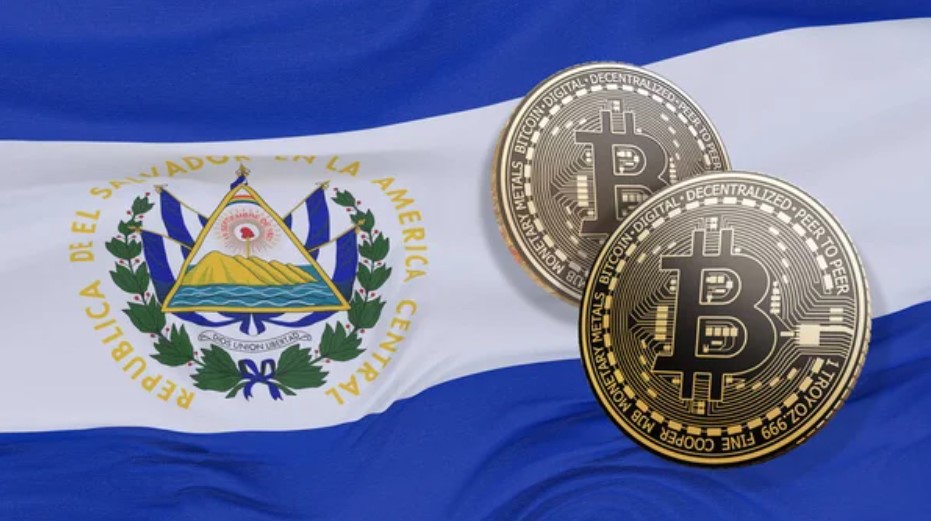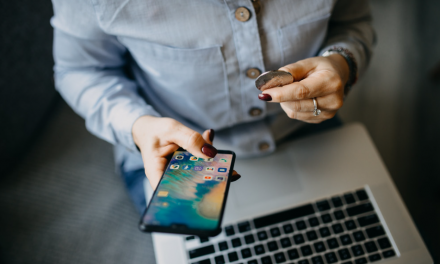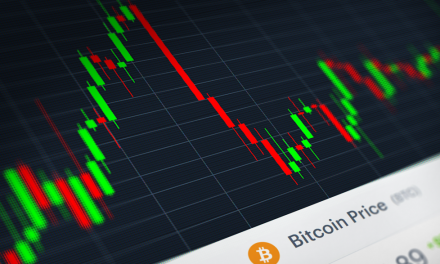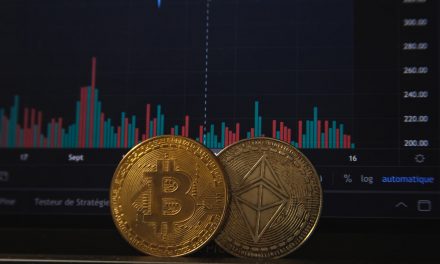When El Salvador’s National Bitcoin Office announced the purchase of 12 additional Bitcoin on February 4th—pushing its reserves to 6,068 BTC, valued at over $554 million—the move wasn’t just another line item in the volatile crypto markets. It was a defiant statement in the face of mounting international pressure, a calculated bet on a decentralized future, and a real-time experiment in monetary sovereignty that continues to captivate and confound economists, technologists, and policymakers alike.
As someone who has tracked this Central American nation’s crypto journey since its groundbreaking 2021 decision to adopt Bitcoin as legal tender, I can attest that what we’re witnessing transcends mere asset accumulation. This is a high-stakes geopolitical chess game played with blockchain-based pieces, where traditional financial institutions and emerging digital economies clash over the future of value itself.
Buying the Dip While Navigating IMF Headwinds
El Salvador recently expanded its Bitcoin holdings with 11 BTC purchased at $101,816 each, followed by another acquisition of a single Bitcoin at $99,114. This buying spree occurred during a sharp 7% intraday price drop that temporarily pushed Bitcoin below $96,000. While such volatility might unsettle retail investors, President Nayib Bukele’s administration has adeptly navigated these market conditions. In 2023, the government enhanced its automated purchasing system to execute transactions at predetermined price points, effectively converting market volatility from a potential risk into a strategic advantage.
But the real story lies in the context: These purchases occurred just days after Bukele secured a $1.4 billion financing deal with the International Monetary Fund (IMF), an institution that had explicitly demanded reduced government involvement in Bitcoin activities. The agreement required dismantling mandatory Bitcoin acceptance laws and phasing out state control of the Chivo wallet—a national crypto payments app plagued by technical issues and low adoption since its 2021 launch.
“This isn’t contradiction—it’s calibration,” explains Dr. María Fernández, a former IMF economist now advising Latin American governments on digital assets. “By conceding on consumer-facing Bitcoin policies while doubling down on Treasury reserves, Bukele maintains his ideological banner while appeasing institutional creditors.”
From Legal Tender to Strategic Reserve
Rewind to September 7, 2021: El Salvador becomes the first nation to adopt Bitcoin as legal tender, a move initially met with street protests, credit rating downgrades, and warnings of economic instability. Fast-forward three years, and the narrative has subtly shifted. What began as a controversial mandate for everyday transactions has morphed into a focused reserve strategy—a digital counterpart to gold hoarding, but with blockchain’s programmable transparency.
The technical infrastructure behind these purchases reveals sophistication often overlooked by critics. Unlike casual investors using Coinbase, El Salvador’s treasury operates through over-the-counter (OTC) desks and customized custody solutions involving multi-signature wallets distributed across geographically secured vaults. “We’ve implemented a hybrid model,” reveals a technical advisor to the National Bitcoin Office who requested anonymity. “A portion remains in deep cold storage, while another segment is actively used for blockchain-based government securities.
This is central banking like you’ve never seen before. El Salvador’s public Bitcoin address—a feature of blockchain transparency not possible with traditional fiat—has been consistently accumulating Bitcoins since 2021, with strategic purchases at market dips. With an average purchase price reportedly below $45,000, El Salvador’s unrealized gains now exceed $300 million. However, officials stress that this strategy is a long-term play spanning multiple decades.
Compliance vs. Crypto Convictions
The delicate dance with the International Monetary Fund reveals much about the pragmatism underlying Bukele’s Bitcoin evangelism. Under the January 2024 agreement, El Salvador committed to:
- Repeal laws forcing businesses to accept Bitcoin
- Transfer Chivo wallet operations to private entities
- Enhance financial risk disclosures related to crypto holdings
Yet crucially, the deal contained no prohibitions on treasury-level Bitcoin accumulation—a loophole the government has exploited with precision. “The IMF cares about systemic stability, not reserve composition,” notes Carlos Alvarado, a San Salvador-based financial lawyer involved in the negotiations. “By removing Bitcoin from consumer coercion while maintaining it as a sovereign asset, Bukele threads the needle.”
This bifurcated approach has allowed El Salvador to continue its dollarized economy (the USD remains legal tender) while building a Bitcoin position that now represents nearly 4% of its total reserves. For comparison, the U.S. gold reserves account for 78% of its foreign holdings—a parallel not lost on Salvadoran officials.
Market Ripples and the Geopolitics of Digital Gold
While 12 Bitcoin barely registers in global markets (daily trading volumes exceed $20 billion), the psychological impact of national accumulation strategies is profound. “El Salvador’s persistence legitimizes Bitcoin as a reserve asset,” says Michael Lin, a portfolio manager at crypto-focused hedge fund NGC. “It’s the proof-of-concept for smaller nations seeking alternatives to dollar dependency.”
Indeed, multiple developing economies—from Tonga to Guatemala—have quietly explored Bitcoin legislation since 2021. Paraguay’s 2023 “Bitcoin mining with hydroelectric surplus” initiative and the Central African Republic’s short-lived crypto legal tender experiment (abandoned under IMF pressure) suggest a growing appetite for digital asset strategies among resource-rich, cash-poor nations.
Yet risks abound. Bitcoin’s 30-day volatility still averages 4x that of gold, and El Salvador’s debt-to-GDP ratio remains stubbornly high at 84%. Critics like Harvard economist Kenneth Rogoff argue that “speculative crypto holdings amplify sovereign risk,” pointing to 2022’s crypto winter when the country’s Bitcoin reserves lost 60% of their value.
But Bukele’s team counters with a macroeconomic chess move: By collateralizing Bitcoin holdings for blockchain-based bonds (delayed but not abandoned), they aim to create a circular economy where digital assets back public debt, attracting crypto-native investors repelled by traditional securities.
Volcano Bonds, AI Forecasting, and a Nation’s Digital Destiny
El Salvador’s Bitcoin Office has been clear: Purchases will “intensify in 2025.” This isn’t arbitrary timing. The government plans to launch its long-awaited Volcano Bonds—$1 billion in tokenized securities offering citizenship perks and geothermal-powered Bitcoin mining yields—by late 2024. Success could create a self-reinforcing cycle: Bond proceeds fund mining infrastructure, mining revenue buys more Bitcoin, and Bitcoin collateralizes more bonds.
Technologically, the country is innovating beyond simple HODLing. Leaked documents reveal AI-powered dashboards analyzing on-chain data, social sentiment, and energy markets to optimize purchase timing. Meanwhile, partnerships with Blockstream and Bitfinex suggest ambitions to build Bitcoin-based payment rails for cross-border remittances—a $8 billion lifeline for Salvadoran families.
Environmental concerns, once a key critique, are being addressed through volcanic geothermal mining projects. The Tecapa plant now directs excess renewable energy to mine Bitcoin—a carbon-neutral model being studied by Kenyan and Icelandic officials.
Monetary Sovereignty in the Digital Age
What unfolds in El Salvador’s volcanic highlands could redefine 21st-century economics. In an era where central banks experiment with CBDCs and tech firms create global stablecoins, Bukele’s strategy offers a third path: leveraging decentralized crypto assets as national strategic reserves.
The implications are profound. Should Bitcoin appreciate as proponents predict, El Salvador could theoretically pay down IMF debt using crypto gains—an ironic twist that would send shockwaves through multilateral finance. Conversely, a prolonged bear market could strain public finances, validating critics’ warnings.
For citizens battered by gang violence and poverty, Bitcoin represents both risk and hope: a tool for financial inclusion in a nation where 70% lack bank accounts, yet a volatile asset in an economy where the average wage is $400/month.
A High-Stakes Blueprint for the Crypto Age
El Salvador’s Bitcoin journey, flawed and audacious, is more than a financial curiosity—it’s a live prototype for digital-age sovereignty. By maintaining its accumulation strategy amid IMF negotiations, the government signals that crypto reserves aren’t a passing fad but a strategic priority.
The coming years will test whether Bitcoin can evolve from speculative asset to stabilizing reserve, whether decentralized networks can complement traditional finance, and whether small nations can leverage blockchain technology to rewrite economic rulebooks. Whatever the outcome, El Salvador has ensured its place as the petri dish of monetary innovation—a role as risky as it is revolutionary.
As the sun sets over the Pacific, casting golden light on Bitcoin Beach’s crypto-powered community, one can’t help but wonder: If this experiment succeeds, will future historians mark 2024 not for Bitcoin’s price swings, but for the moment a nation dared to redefine value itself?





